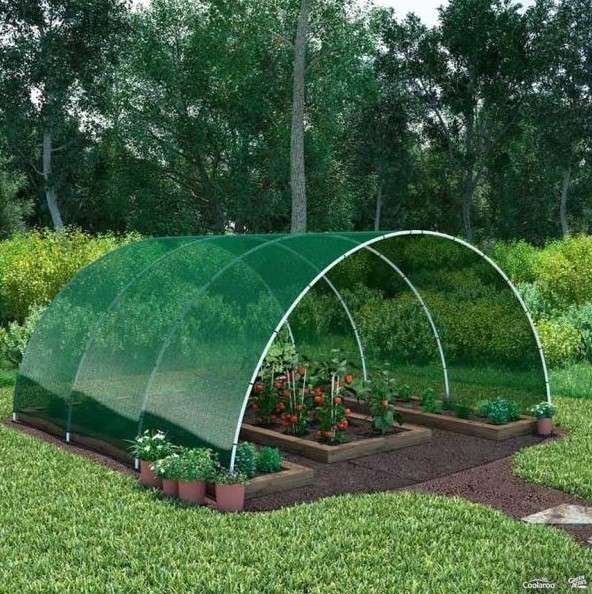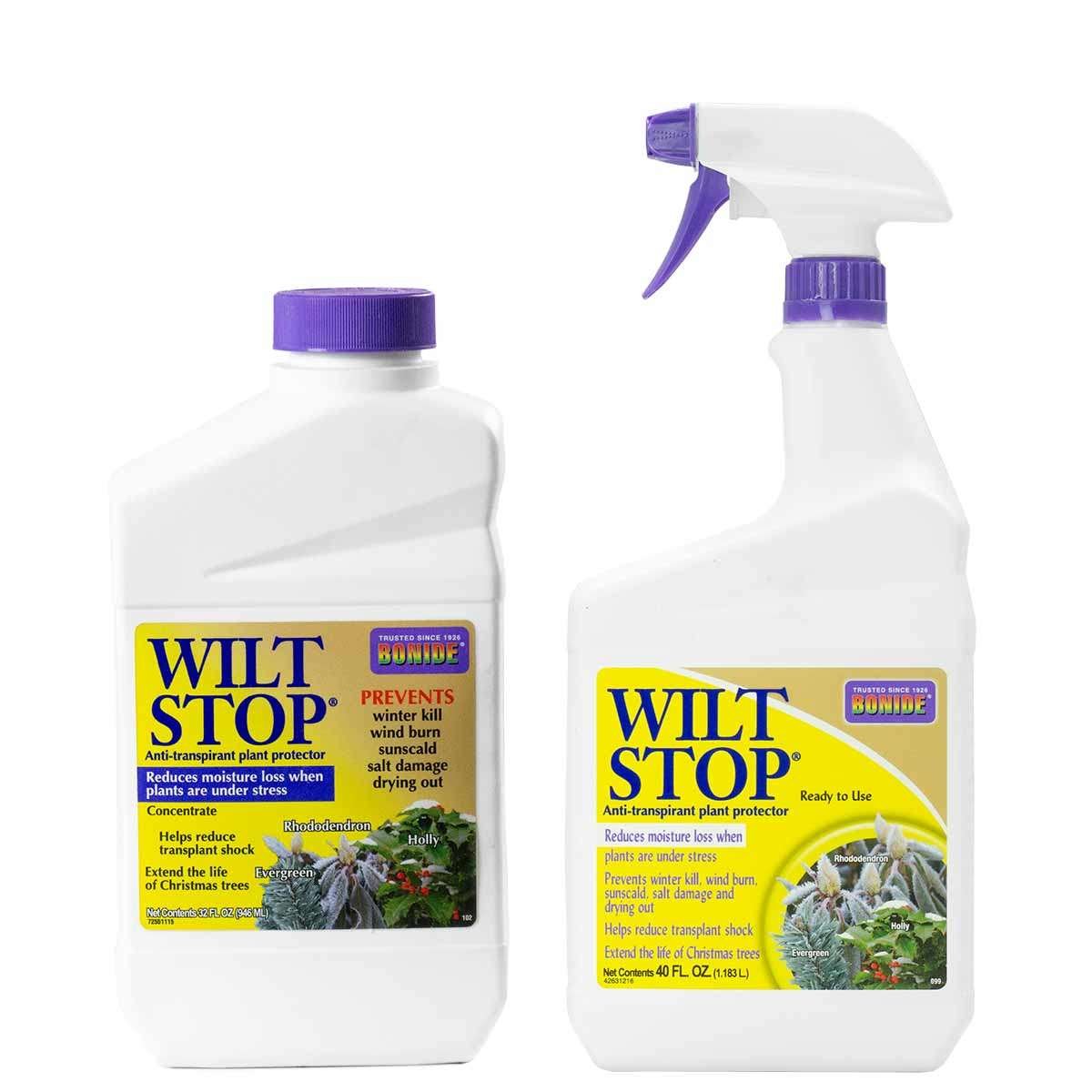
July Garden Tasks
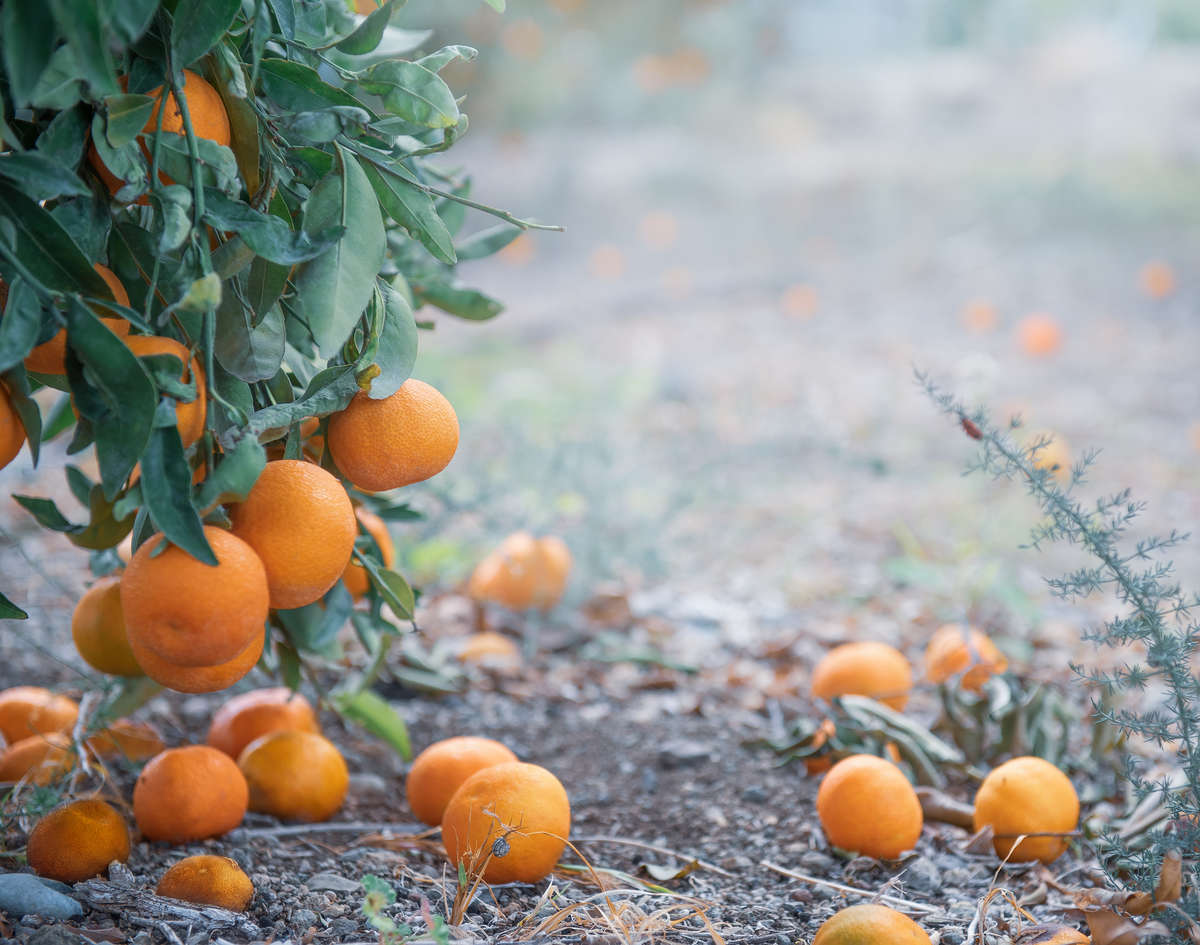
July Garden Tasks
You've put a lot of hard work and planning into your yard and garden, and we want to make sure it sails through the hot summer. Our July Garden Task list offers advice to help you keep your cool when heat hits your garden.
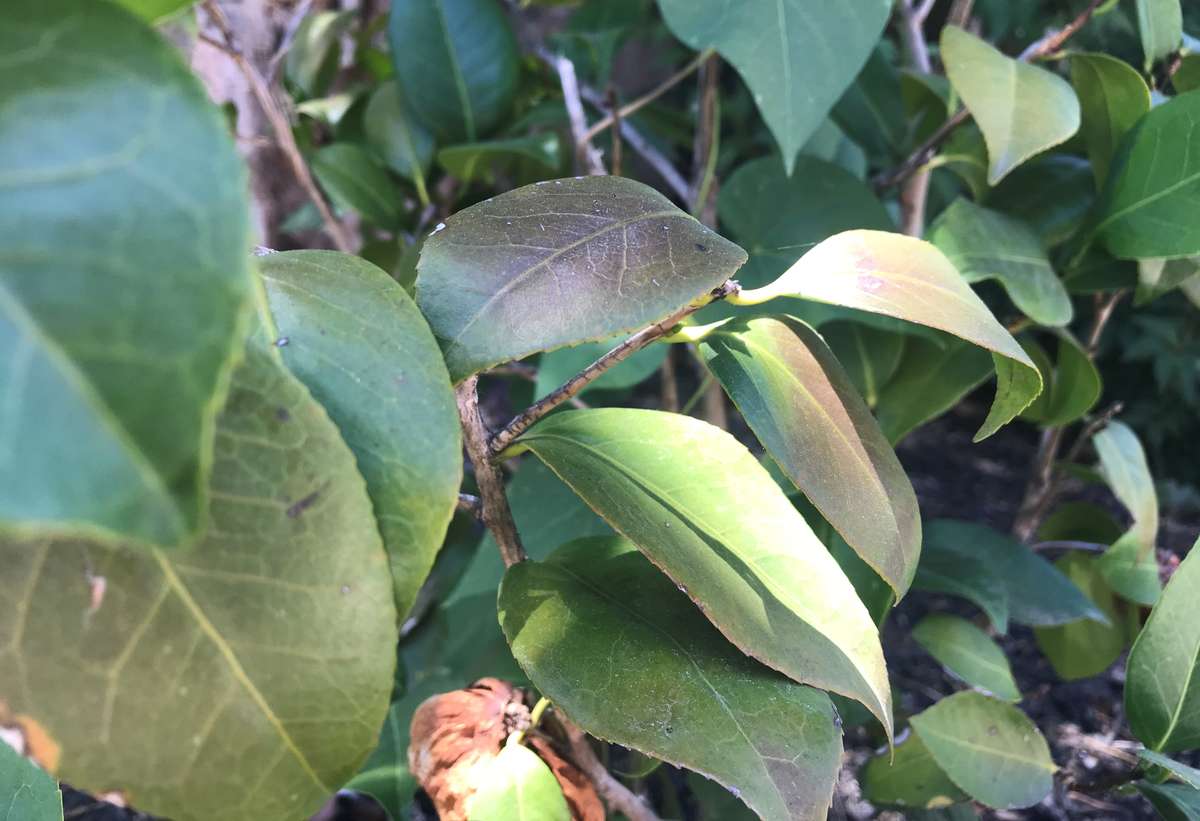
Leaf Me Alone
Leaves are sensitive, and the tips of the leaves are the most sensitive part. Still, if just the leaf tips are brown, that might be okay. If just the exterior layer of leaves on the plant are brown, that might be okay too. Plants have ways to protect themselves and they know just what to do with those heat-damaged leaves: They are used as an umbrella to shade the rest of the plant. We recommend leaving those leaves on the plant. More than just the exterior layer of leaves damaged? Simply bring in a bagged sample and let one of our gurus take a closer look.
Made for the Shade
Sometimes a little extra shade is needed during summer's peak . . . herbs come to mind.
Use a shade fabric that is designed to provide UV protection of up to 50% for your garden. By doing so, you'll be able to extend your growing season.
Avoid resting the shade cloth on your plants—if the cloth is too close, it will hold in heat and cause more damage. Good air flow keeps plants cool.
Use a shade fabric that is designed to provide UV protection of up to 50% for your garden. By doing so, you'll be able to extend your growing season.
Avoid resting the shade cloth on your plants—if the cloth is too close, it will hold in heat and cause more damage. Good air flow keeps plants cool.
Stop Damage With Wilt Stop®
Bonide® Wilt Stop® is also a great way to protect your younger plants from heat. Wilt Stop slows the water loss from leaves, keeping them hydrated. This is an especially good solution for younger plants that don’t have a lot of leaves yet and need extra protection from strong sun and heat.
Useful on plants like Japanese maples, hydrangeas, and other tender trees, shrubs and perennials. Did you know that it's also useful to extend the life of cut flowers?
Useful on plants like Japanese maples, hydrangeas, and other tender trees, shrubs and perennials. Did you know that it's also useful to extend the life of cut flowers?
Check the Soil Before Watering
Are your plants wilting in the middle of the day? Resist the urge to turn on the water until you've checked the soil. Plants can wilt on purpose to protect themselves from extreme heat and sun. Always check the soil first to see if it is dry and needs water. Adding unneeded water can add drowning to the stress.
If the soil is indeed dry, adjust your watering schedule to help your plants get through our hot Mediterranean summers. When using overhead water by traditional sprinklers, be sure to water early in the day before the sun comes out. Wet leaves burn when the hot sun hits them. Using sprinklers at night allow diseases like powdery mildew and rust to appear. Lawns typically get diseases and mushrooms when watered at night. Sprinklers are best used from about 4am to 8am in the summer.
Consider converting to drip irrigation for beds, and MP Rotator nozzles for lawns to direct water to where it needs to go. Drip irrigation applies water at the soil level, avoiding the diseases that can be a result of overhead application. MP Rotator nozzles allow for the slower application of water which ultimately allows you to water deeply and less frequently. And, keep to the early morning watering schedule.
If the soil is indeed dry, adjust your watering schedule to help your plants get through our hot Mediterranean summers. When using overhead water by traditional sprinklers, be sure to water early in the day before the sun comes out. Wet leaves burn when the hot sun hits them. Using sprinklers at night allow diseases like powdery mildew and rust to appear. Lawns typically get diseases and mushrooms when watered at night. Sprinklers are best used from about 4am to 8am in the summer.
Consider converting to drip irrigation for beds, and MP Rotator nozzles for lawns to direct water to where it needs to go. Drip irrigation applies water at the soil level, avoiding the diseases that can be a result of overhead application. MP Rotator nozzles allow for the slower application of water which ultimately allows you to water deeply and less frequently. And, keep to the early morning watering schedule.
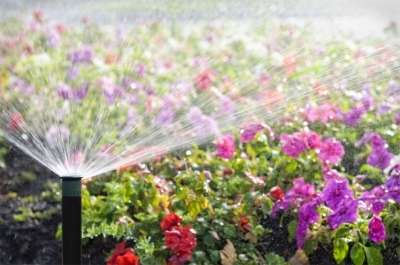
Consider converting to drip to avoid diseases that can result from overhead sprinklers.
Other Tasks For July
- Pick up dropped fruit off the ground to stop insect and disease cycles.
- Feed veggie gardens each month with organic fertilizers.
- Adjust mower height so cut grass is tall enough to keep the sun from hitting the soil. Taller lawn keeps irrigation in longer and stops weeds from sprouting.
- Keep an eye out for suckers growing at the soil line or below graft lines for citrus, olives, fruit trees, and roses. Prune off all suckers.
- Still have room to plant more veggies? It's time to plant seeds for broccoli, Brussels sprouts, cabbage and cauliflower.

